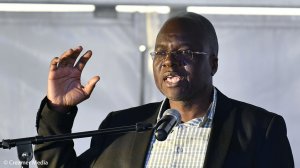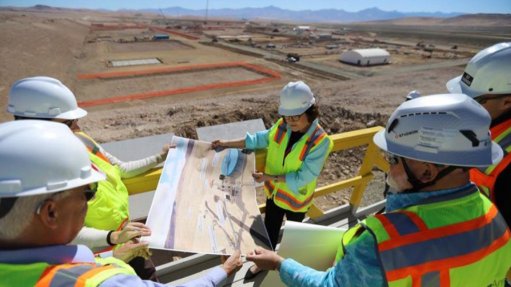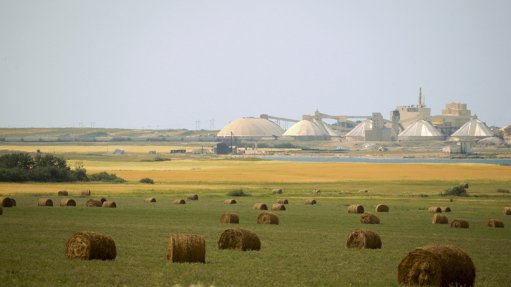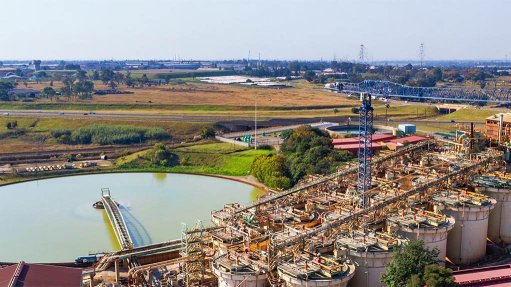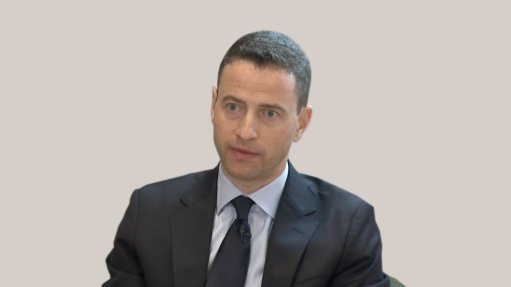Contract route saves gold project R300m, local tech takes tanks out of critical path

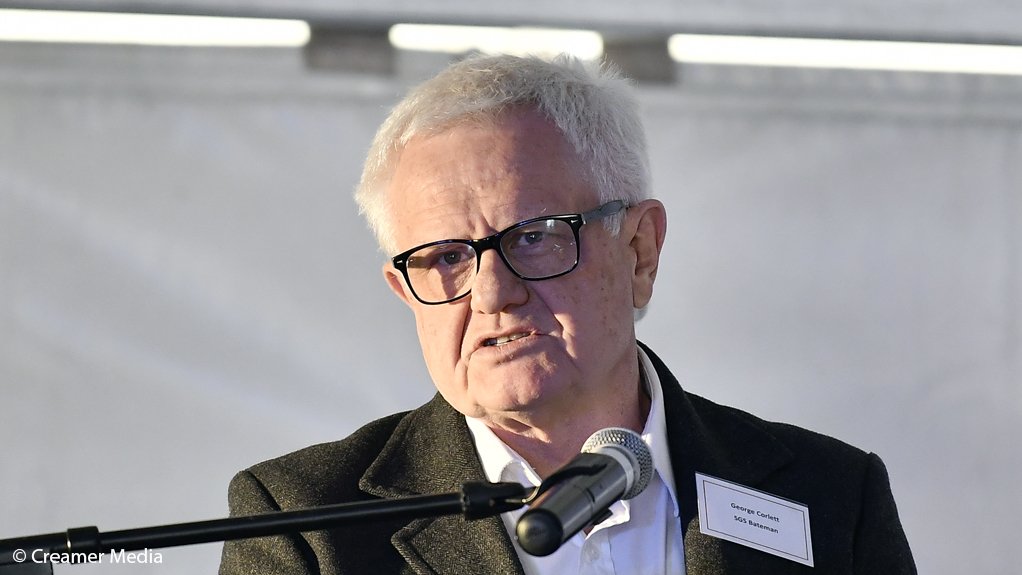
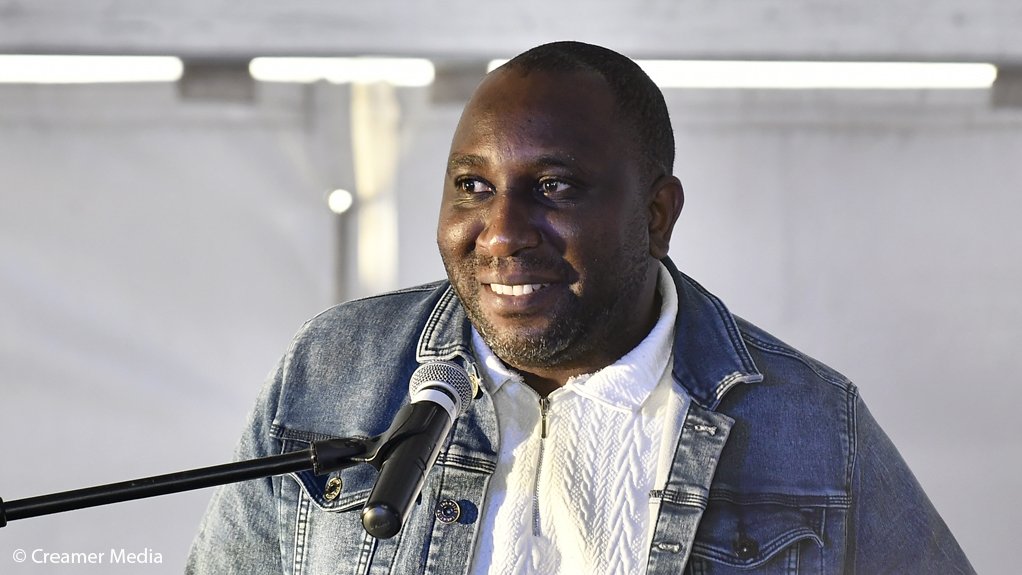
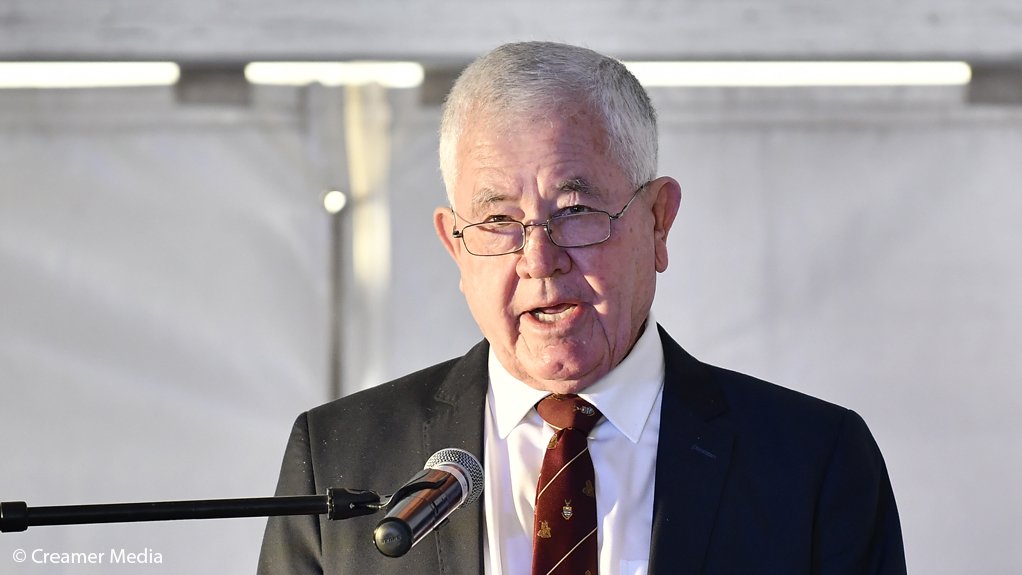
Pan African's project launch covered by Mining Weekly's Martin Creamer. Video: Creamer Media's Shadwyn Dickinson and Nicholas Boyd.
SGS Bateman MD George Corlett
Photo by Creamer Media Chief Photographer Donna Slater
Department of Mineral Resources and Energy representative George Siwele
Photo by Creamer Media Chief Photographer Donna Slater
Pan African chairperson Keith Spencer
Photo by Creamer Media Chief Photographer Donna Slater
JOHANNESBURG (miningweekly.com) – The contract route chosen to recover gold from the mine dumps of the West Rand’s Mogale City reduced the project cost by R300-million.
In addition, the technical prowess of a Krugersdorp fabrication and erection company down the road virtually took the carbon-in-leach (CIL) gold processing tanks out of the project’s critical path, and power supply infrastructure was piggy-backed from another nearby metals company, which provided a valuable electricity offramp for the gold upramp.
A first for Pan African was to go on the engineering, procurement and construction management (EPCM) contracting structure.
“That has saved us about R300-million,” Mogale Tailings Retreatment (MTR) operations manager Oriel Shikwambana highlighted at the operational commissioning of MTR, covered by Mining Weekly. (Also watch attached Creamer Media video.)
The original budget figure was R2.8-billion and opting for EPCM reduced the project budget to R2.5-billion. The timeline was squeezed to 14 months.
More than one-and-a-half-million person hours have been spent in construction on this site, without a single lost-time injury (LTIs). “There were zero LTIs,” SGS Bateman MD George Corlett said to the strongest applause of the day.
Contractually, SGS Bateman was to deliver the project to cold commissioning stage by the already tight October 17 timeline, but managed hot commissioning on October 3, when the first gold was smelted.
“The long hours worked over the entire 22 months of the project show the dedication and commitment to meet the project goals,” Corlett said.
The project is said to have been elevated by a win-win, one-team, open-communication approach of Pan African project manager Brandon Russell, working closely with the SGS Bateman project team leader Charl Botha.
“This is a great opportunity for the area. I know that other companies have looked at retreating the dumps in the area and have passed the opportunity by, whereas Pan African has taken that handle and run with it. The area needs the employment. The rehabilitation of the area will be great and it will be good for our country,” Corlett added.
Originally planned was the creation of 700 jobs, with 500 from the local community, but this has been significantly exceeded, resulting in more than 1 600 employees now being on site and 1 040 of them being drawn from the local community.
Department of Mineral Resources and Energy (DMRE) representative George Siwele spoke of the value of the 20 years of employment that the project is bringing to the area, coupled to the removal of dumps that some regard as a nuisance.
The DMRE contribution, Siwele said, would be in the form of the department's mine, health and safety inspectorate support structure.
He personally represented the mine equipment inspectorate, while the colleagues with him dealt with mining-related issues. An occupational hygiene inspector also formed part of that support system.
“Then my other counterpart colleagues are from a section called mineral regulation dealing with environmental issues and social and labour plans."
Growth was supported through training and certification of a number of qualifications, in direct liaison with the department's Mining Qualifications Authority.
“Social and labour colleagues are best suited in terms of assisting, if you are going to be providing training or assisting upcoming employees in the area, on how best to deal with that fund going forward,” added Siwele, who welcomed Pan African to the DMRE region, which he described as being based in Braamfontein but with DMRE officials available on their cellphones.
THE GOLDEN CITY
Twenty per cent of all the gold ever mined in the world – close to 1.3-billion ounces of the precious metal – was mined on the Witwatersrand, of which Pan African’s MTR operation forms part.
Johannesburg, one of the few cities in the world not situated along a coastline or large river system, was built on underground rivers of gold.
“We’re injecting fresh cash and life into an area that was seemingly written off in terms of degradation and pollution by more than 100 years of mining,” noted Pan African chairperson Keith Spencer.
Left behind is a scarred landscape, affecting thousands of lives in communities built around what many have regarded as worthless, dusty mine dumps, with only liabilities remaining.
“While we’re mining, we’ll rehabilitate the environment, install a renewable-energy facility, plus other improvements that will sustain the land and its communities for a long time,” said Spencer, who promised to process "this waste” profitably for the benefit of all stakeholders.
“This is what it is all about, leaving a positive legacy for future generations,” he highlighted.
No security incidents have been suffered and illegal mining has virtually been managed out of the area completely, Shikwanbana said to applause.
The CIL gold processing tanks were originally in the project’s critical path and their installation would have absorbed considerable management time and capacity until local company Betterect was contacted to make the CIL tanks. Moreover, the bolted design it came up with averted feared flange leaks.
“We set up the CILs without a single leak,” Shikwanbana reported.
“Then we also piggy-backed on the Bright Alloys power supply infrastructure and power is currently being supplied from the Bright Alloys infrastructure.
Another important contributor was DMRE approval of the environmental licence being bang on time, which enabled construction to begin when planned.
“The last point is that we split the acquisition of the electrical cables from the electrical contractor’s scope. Generally, when the electrical contractor comes to do the construction, they come with their own cables.
“We managed to negotiate because we felt that if we split the cables, we’d be able to acquire them much quicker from our side and then it will also save on cost as well, After we split that, we managed, from an acquisition perspective, to save about a week or so, and also on the cost we saved quite a bit of money as well,” he added.
Processed slimes dam material will initially be deposited into the West Wits openpit.
As cited by Pan African CEO Cobus Loots, the biggest takeaway from what is set to become a hugely profitable operation is that investing in South Africa can bear considerable fruit.
“It’s quite ironic. We’ve been pretty much all over Africa looking for opportunities in terms of expanding our business and ultimately we’ve come back to South Africa and less than an hour from our corporate office, we have 1.1-million ounces of recoverable gold reserve here, and we acquired all of it for just over $1/oz, which is fantastic,”
Payback of the initial investment is expected in two to three years at a time when the gold price is $2 500/oz.
Interestingly, the London- and Johannesburg-listed company has advanced significantly in gold recovery from surface dumps.
Pan African's total gold production is expected to hit the 220 000 oz mark this financial year, with net cash possibly flowing by 2026.
Article Enquiry
Email Article
Save Article
Feedback
To advertise email advertising@creamermedia.co.za or click here
Announcements
What's On
Subscribe to improve your user experience...
Option 1 (equivalent of R125 a month):
Receive a weekly copy of Creamer Media's Engineering News & Mining Weekly magazine
(print copy for those in South Africa and e-magazine for those outside of South Africa)
Receive daily email newsletters
Access to full search results
Access archive of magazine back copies
Access to Projects in Progress
Access to ONE Research Report of your choice in PDF format
Option 2 (equivalent of R375 a month):
All benefits from Option 1
PLUS
Access to Creamer Media's Research Channel Africa for ALL Research Reports, in PDF format, on various industrial and mining sectors
including Electricity; Water; Energy Transition; Hydrogen; Roads, Rail and Ports; Coal; Gold; Platinum; Battery Metals; etc.
Already a subscriber?
Forgotten your password?
Receive weekly copy of Creamer Media's Engineering News & Mining Weekly magazine (print copy for those in South Africa and e-magazine for those outside of South Africa)
➕
Recieve daily email newsletters
➕
Access to full search results
➕
Access archive of magazine back copies
➕
Access to Projects in Progress
➕
Access to ONE Research Report of your choice in PDF format
RESEARCH CHANNEL AFRICA
R4500 (equivalent of R375 a month)
SUBSCRIBEAll benefits from Option 1
➕
Access to Creamer Media's Research Channel Africa for ALL Research Reports on various industrial and mining sectors, in PDF format, including on:
Electricity
➕
Water
➕
Energy Transition
➕
Hydrogen
➕
Roads, Rail and Ports
➕
Coal
➕
Gold
➕
Platinum
➕
Battery Metals
➕
etc.
Receive all benefits from Option 1 or Option 2 delivered to numerous people at your company
➕
Multiple User names and Passwords for simultaneous log-ins
➕
Intranet integration access to all in your organisation


